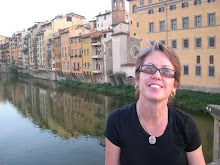If I could encourage everyone to read one book this year it would be The Omnivore’s Dilemma: A Nature History of Four Meals. It is thought provoking, scary as hell, but not in a psychopathic serial killer kind of way, and very, very readable. The author, Michael Pollan, manages to bring the horrors of industrial agriculture/farming and CAFOs (Concentrated Animal Feeding Operations) to our attention in a straightforward, non-preachy way. He convincingly conveys the dire consequences of these industries on the planet, our country, people, and the animals that have been reduced to numbers; those with dollar signs in front of them.
We have lost touch with our food; we have no idea where it comes from let alone how it gets to our table. Pollan manages to convey the horrific conditions that animals on these “farms” live under without going into unnecessarily gory details. You don’t have to be a radical animal activist or become a vegetarian to care about the lives of the animals we eat. I have toyed with the idea of becoming a vegetarian over the years, but the bottom line is, I like meat. But, I will never again eat meat without thinking about where it comes from or the intolerable conditions that cattle live under, like being fed corn—they are fed hard and fast in order to put on weight quickly, so quickly that they sometimes can’t even support themselves. They are fed animal byproducts (disgusting but true) and hormones, again to put weight on quickly. They are kept in confinement and spend their days standing in their own urine and manure—something Pollan refers to as “manure ponds”—and because these conditions are detrimental to the health of the animal (really?) they are fed antibiotics. Did you know the majority of antibiotics made in the United States are fed to cattle? Healthy cattle don’t need antibiotics.
Cattle are not the only animals that receive such treatment from the “corporations” that—huh, raise is not quite the right word… process?—chickens and pigs are also kept in CAFOs.
The book isn’t all doom and gloom; Pollan introduces us to Joel Salatin and Polyface Farm. Mr. Salatin raises all his cattle, pigs and chickens the old fashion way, and at the same time is innovative in the science he applies to rotating these animals around the farm so that while they consume the grass, they also fertilize it, again, the old fashion way. There is, of course, much more to the book than this. Read it, perhaps it’ll open your eyes as well.
What’s the alternative? For us it means buying humanely raised, pasture fed beef—no corn, meat byproducts, hormones, or antibiotics—from a farm within an hour’s drive from our home and growing our own vegetables, supplementing through a CSA (Community Supported Agriculture). There are lots of CSAs and humane farms out there; I bet there’s even one located near to you.
Friday, April 17, 2009
Subscribe to:
Post Comments (Atom)

No comments:
Post a Comment